RETHINK AGE-BASED PIPELINE REPLACEMENT.
More than half of water and wastewater pipelines in North America are metallic. These pipelines are aging with many at or near the end of their useful life. Cast iron pipes are of particular concern. They have three times more leaks and a higher break rate than other pipe materials. And cast iron failures can be catastrophic.
Replacement needs are growing but so is the funding gap. Replacing aging infrastructure will cost billions of dollars and take decades. With limited capital and aging assets, the need for accurate, actionable data has never been greater. Utilities commonly replace critical pipelines based on age or past failures. But the best way to make long-term pipeline renewal decisions is to understand risk of failure and choose a management approach based on risk.
MINIMIZE RISK, MAXIMIZE USEFUL LIFE.
Age alone doesn’t determine a pipeline’s condition. The U.S. EPA estimates a large percentage of replaced pipe still has remaining useful life. Condition assessment helps utilities decide which pipes to replace and when to replace them. The goal is to reduce risk while leaving good pipe in the ground longer.
![]()
![]()
SPEND MONEY ON THE RIGHT PIPES.
Replacing aging buried infrastructure all at once is unaffordable and impractical. Selective, data-driven renewal helps utilities make the most of limited capital. This approach could save you 80% to 90% compared with a traditional full-scale replacement program.
PROTECT YOUR NETWORK.
Over half of annual pipeline failures are on metallic pipes, according to UK Water Industry Research. Protect your network and your utility’s reputation by identifying problem areas before they result in a failure. Proactive pipeline management is a key component of safe, reliable, and affordable water service.
![]()
LEADERS IN CRITICAL PIPELINE ASSESSMENT.
Pure Technologies, a Xylem brand has helped hundreds of utilities manage their critical pipelines to prevent failure and avoid unnecessary replacement. We have collected and analyzed more than 6,500 kilometers (4,050 miles) of metallic pipe. The good news is most of these pipes are still in good condition. Only a small percent need further investigation.
Pure Technologies works with utilities to choose the right assessment strategy based on system risk. Risk guides which pipes to inspect and which technologies to use. This helps utilities maximize risk reduction and system coverage in the most economic way possible. Leverage our extensive pipeline assessment experience and innovative inspection tools for confident, proactive metallic pipe management.
DEPENDABLE INFRASTRUCTURE FOR THE FUTURE.
It’s now possible to gain actionable data on large-diameter metallic pipelines without removing them from service. That means more data with less disruption. Utilities are using this data to pinpoint problem areas and make more efficient, planned repairs. Condition data also enables confident long-term capital planning. This puts ratepayer investments into the right pipes at the right time. Data-driven decisions are reducing risk and averting failures for a fraction of full replacement costs.
WHY ASSESS CRITICAL PIPELINES?
- Locate leaks and reduce water loss
- Prevent failures with high direct and indirect costs
- Reduce the consequence of failure with better valve control
- Avoid replacing pipe with remaining life
- Selectively repair pipelines using actionable condition data
- Inform capital planning and extend capital budgets
- Limit costly, disruptive pipeline replacement projects
PIPELINE STRATEGY GUIDED BY RISK.
A California utility wanted to ensure the safe operation of a critical steel water main. The pipeline is buried beneath a busy transportation corridor and residential area. By assessing the main and making targeted repairs, the utility saved over $20 million in full-scale replacement costs.
Metallic pipeline management looks different for every water system. Where failure is not an option, utilities need high confidence in their pipeline management decisions. As the risk and consequence of failure increase, so does the benefit of gathering more detailed data. But this level of effort isn’t appropriate for every pipeline. Pure Technologies offers a suite of services and tools that can achieve different levels of assessment. Utilities can assess a single pipeline of concern or make Pure Technologies part of a comprehensive condition assessment program.
FIVE STEPS TO PROACTIVE PIPELINE MANAGEMENT.
Pure Technologies’ approach to pipeline assessment leverages decades of experience in the municipal and energy sectors. We have helped utilities of all sizes balance risk reduction and cost to maximize investments in their critical metallic pipelines. Take the five steps below to enhance system reliability, avoid premature replacement, and capture data for better decision making.
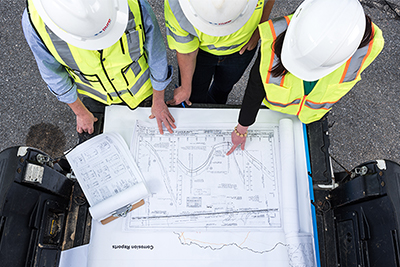
STEP 1
RISK ASSESSMENT
Assessing risk is the first step to proactive pipeline management, whether it’s a single pipeline or an entire transmission network. Prioritize which pipes to inspect and determine what assessment methods to use.
STEP 2
IMPROVE SYSTEM CONTROL
Assessing and rehabilitating critical valves reduces emergency response time and consequence of failure. Working valves also benefit from routine pipeline maintenance and inline inspections. Learn how to regain control of your critical valves.
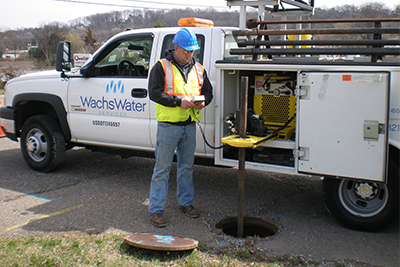
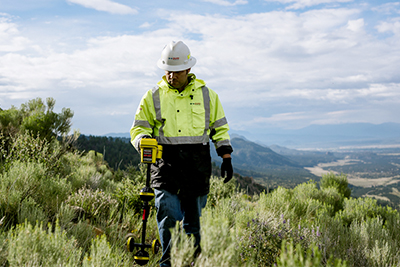
STEP 3
PIPELINE HEALTH CHECK
Manage most pipelines safely using lower resolution solutions such as transient pressure monitoring, leak detection, or above-ground surveys. These solutions reduce the effort needed to get actionable data on lower-risk assets.
STEP 4
INLINE INSPECTION
For higher-risk pipelines, gather more data with inline inspections. Prevent metallic pipe failure by identifying leaks and corrosion early. Our leak detection and pipe wall assessment tools can meet many different operational needs.
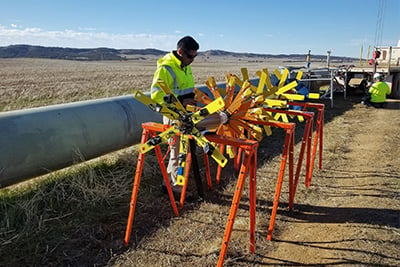
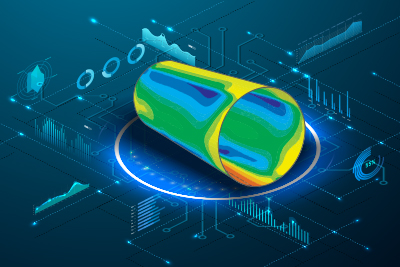
STEP 5
ADVANCED ANALYSIS
Engineering assessment informs high-confidence decisions about today’s problems and guides long-term planning. Determine the operational significance of inspection data. Predict how pipes will respond to stress and degrade over time.
METALLIC PIPE MANAGEMENT TOOLBOX
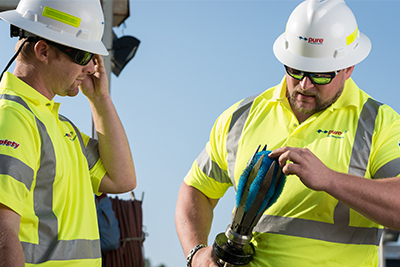
LEAK DETECTION
Inspect pipelines for leaks and gas pockets without disrupting service using our SmartBall® and Sahara® platforms. The SmartBall platform is easy to deploy and excels at long-distance transmission main inspections. The Sahara platform is ideal for complex distribution networks and captures live video in the pipeline.
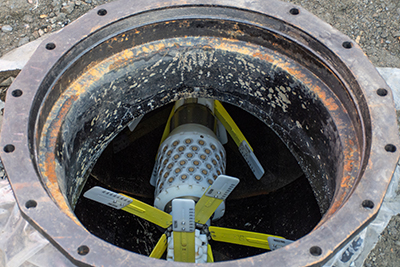
INLINE WALL ASSESSMENT
Inspect metallic pipelines for wall loss caused by corrosion or manufacturer defects. Our PipeDiver® platform is a free-swimming tool that operates while the pipeline remains in service. The PureRobotics® platform is a modular, multi-sensor crawler for depressurized water pipelines.




